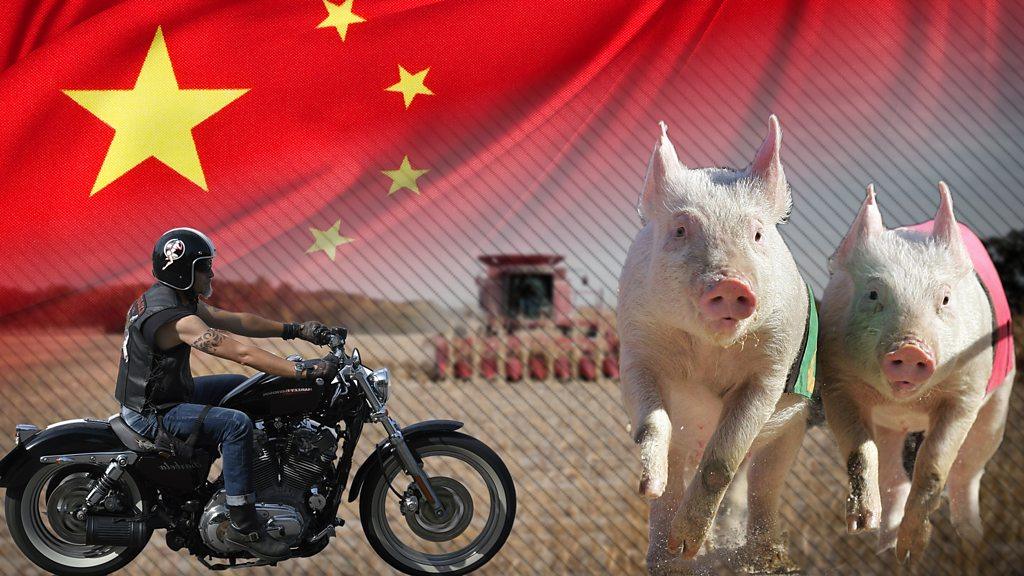Trade war a reality, French finance minister warns
- Published
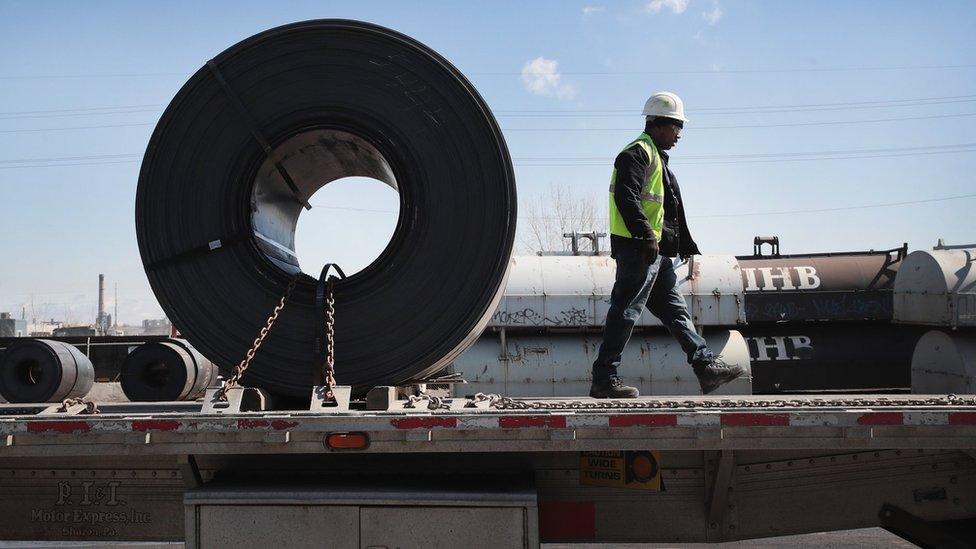
The Trump administration says protecting US steel and aluminium producers is a matter of national security
A trade war is now a reality, French Finance Minister Bruno Le Maire has warned as G20 ministers gather for a summit in Argentina.
The current US trade policy of imposing unilateral tariffs is based on "the law of the jungle", he said.
But US Treasury Secretary Steven Mnuchin defended the tariffs and urged the EU and China to open their markets to allow free competition.
Last week, US President Donald Trump described the EU as a "foe" on trade.
Mr Trump later threatened to impose tariffs on all $500bn (£380bn) of Chinese goods entering the US in a growing trade row.
The US has large trade deficits with both the 28-member EU and China.
The two-day talks in Buenos Aires bring together finance ministers and central bankers of the world's top 20 economies.
What did the French minister say?
"World trade cannot base itself on the law of the jungle and the unilateral increase of tariffs is the law of the jungle," Mr Le Maire told AFP news agency.
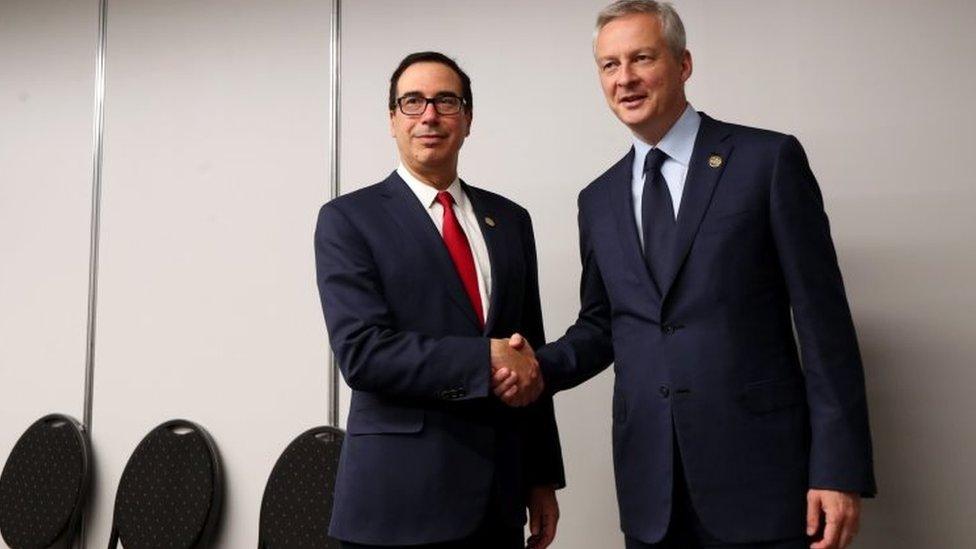
Partners or foes? Steven Mnuchin (left) and Bruno Le Maire at the G20 meeting in Buenos Aires
"The law of the fittest - this cannot be the future of global trade relations. The law of the jungle will only turn out losers, it will weaken growth, threaten the most fragile countries and have disastrous political consequences."
He added that a trade war was now a reality, and that the EU could not consider negotiating a free trade deal with the US without America first withdrawing its tariffs on steel and aluminium.
What is the US argument?
Mr Mnuchin said it was pretty simple.
"My message is pretty clear, it's the same message the president delivered at the G7 (last month in Canada): if Europe believes in free trade, we're ready to sign a free trade agreement with no tariffs, no non-tariff barriers and no subsidies. It has to be all three," he said.
Mr Mnuchin said China had to open its markets "so we can compete fairly".
"We share a desire to have a more balanced relationship and the balanced relationship is by us selling more goods [to China]," he said.
Tariff war. How did we get here?
Little has caused Donald Trump more annoyance than the trading deficits between the US and its major partners.
He believes that if you have a trade deficit - if you import more than you export - you are losing out.
Tackling what he has called "unfair trading practices" has become a key plank of his administration.
The European Union, China and the North American Free Trade Agreement (Nafta) countries, Mexico and Canada, have been his main targets.
Mr Trump has pulled out of the Trans-Pacific Partnership (TPP) trade deal and wants a renegotiated Nafta deal.
The key actions so far
January: The US slaps tariffs on imported washing machines and solar panels
June: The Trump administration introduces tariffs of 25% on steel and 10% on aluminium imported into the US, arguing that global oversupply, driven by China, threatens American producers. The EU enacts retaliatory tariffs on a range of US goods, including bourbon whiskey, Harley Davidson motorcycles and orange juice
July: A 25% tariff affecting $34bn (£25.7bn) of Chinese goods begins. China retaliates in kind, with equivalent tariffs on the same value of US goods. Mr Trump threatens a 10% additional tariff on $200bn worth of additional Chinese products, naming more than 6,000 items, external
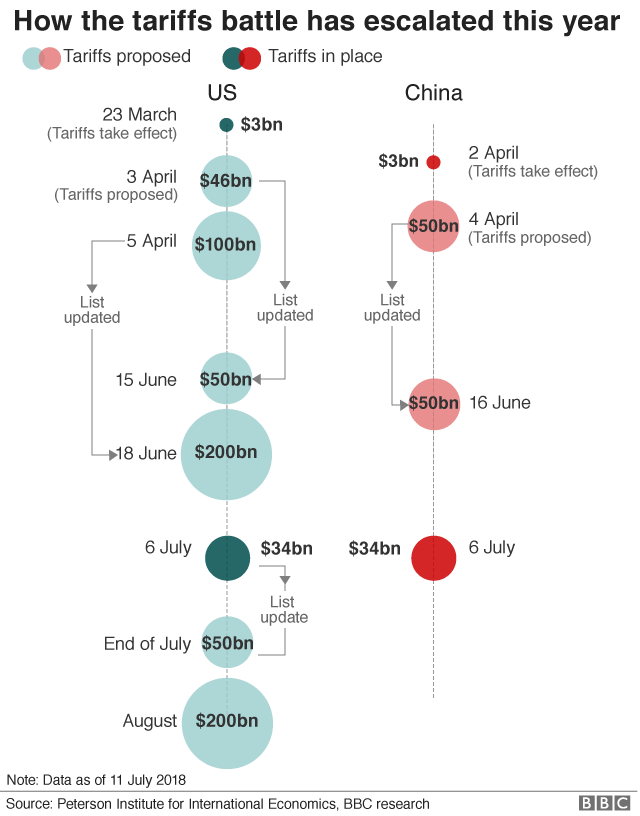

- Published15 July 2018
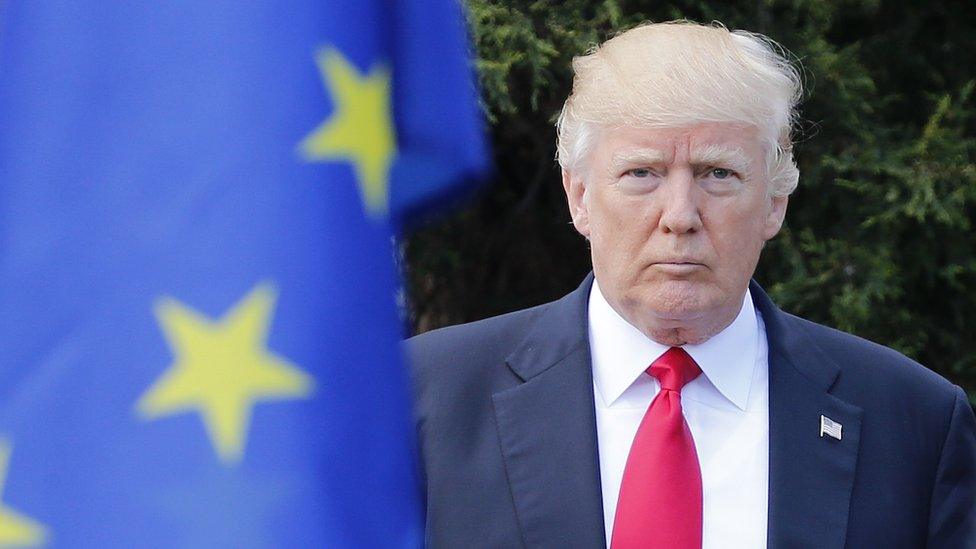
- Published15 June 2018
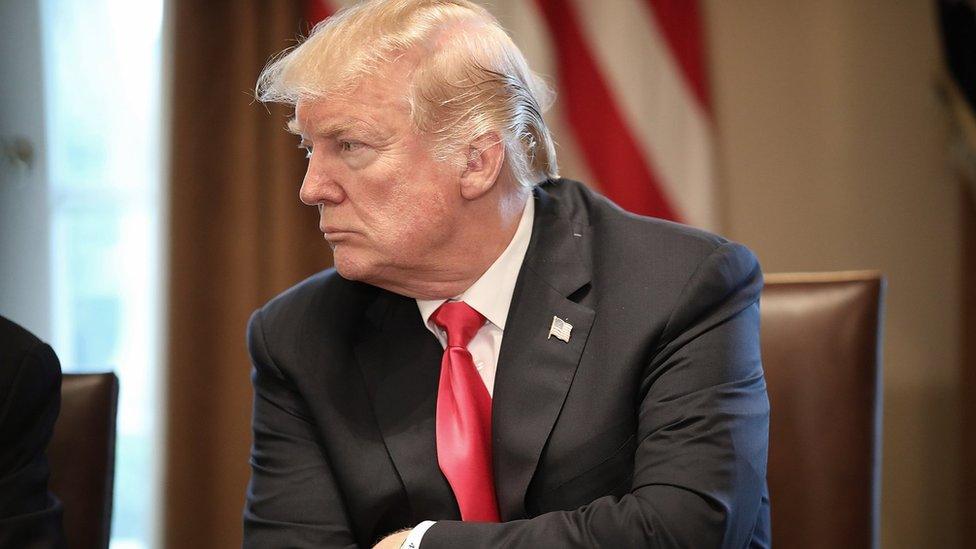
- Published31 May 2018
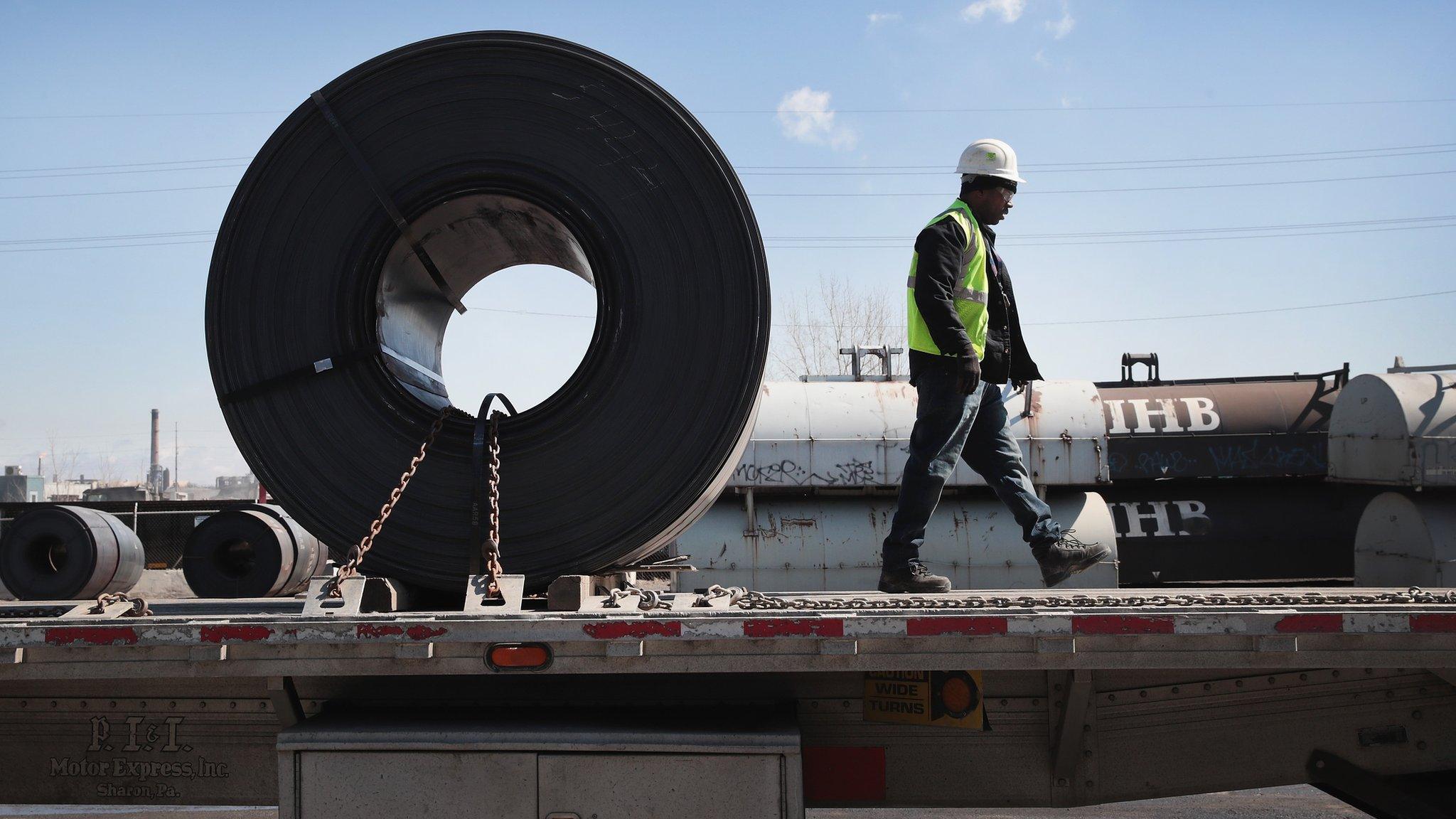
- Published15 June 2018

- Published1 June 2018
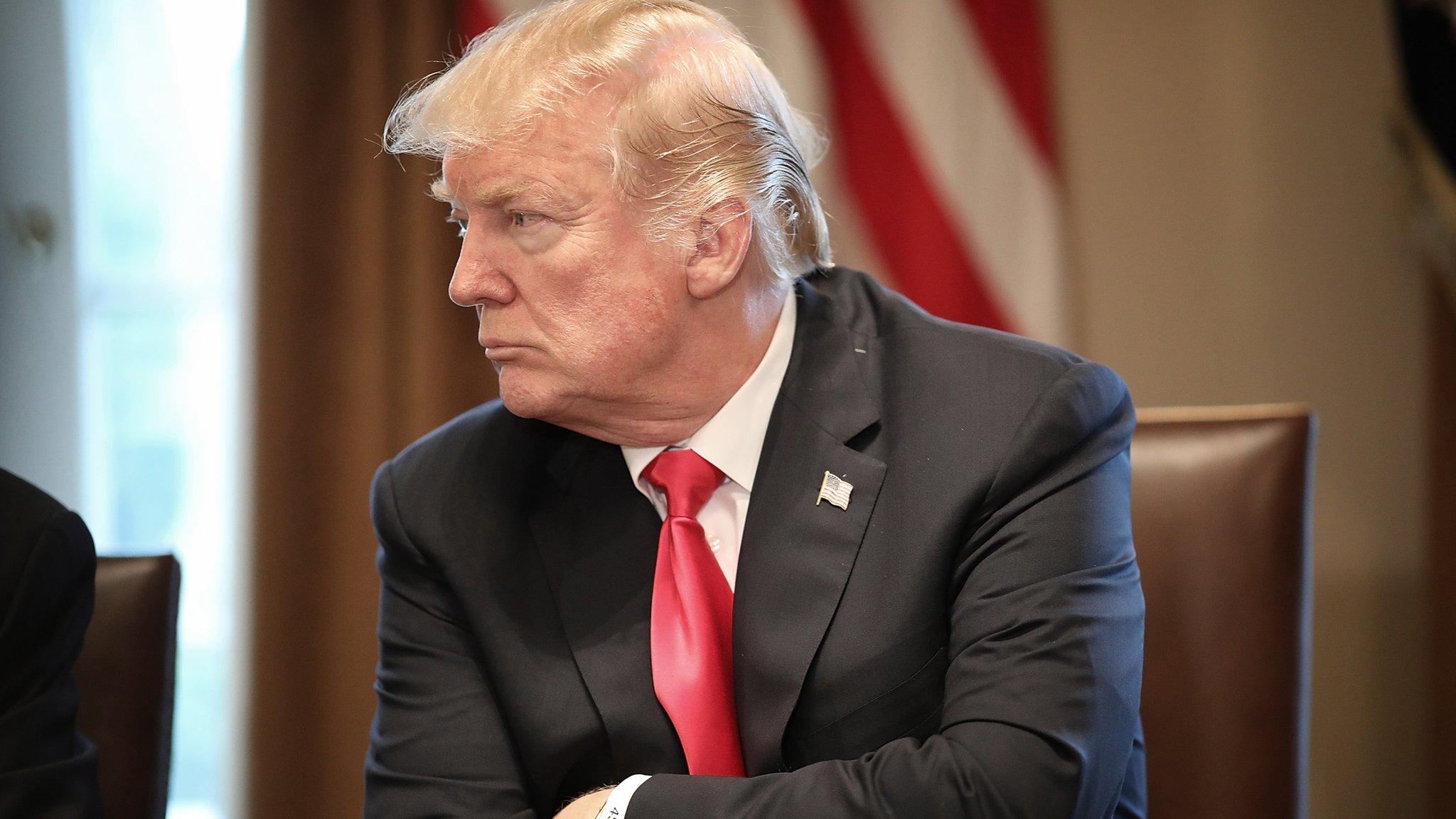
- Published6 April 2018
